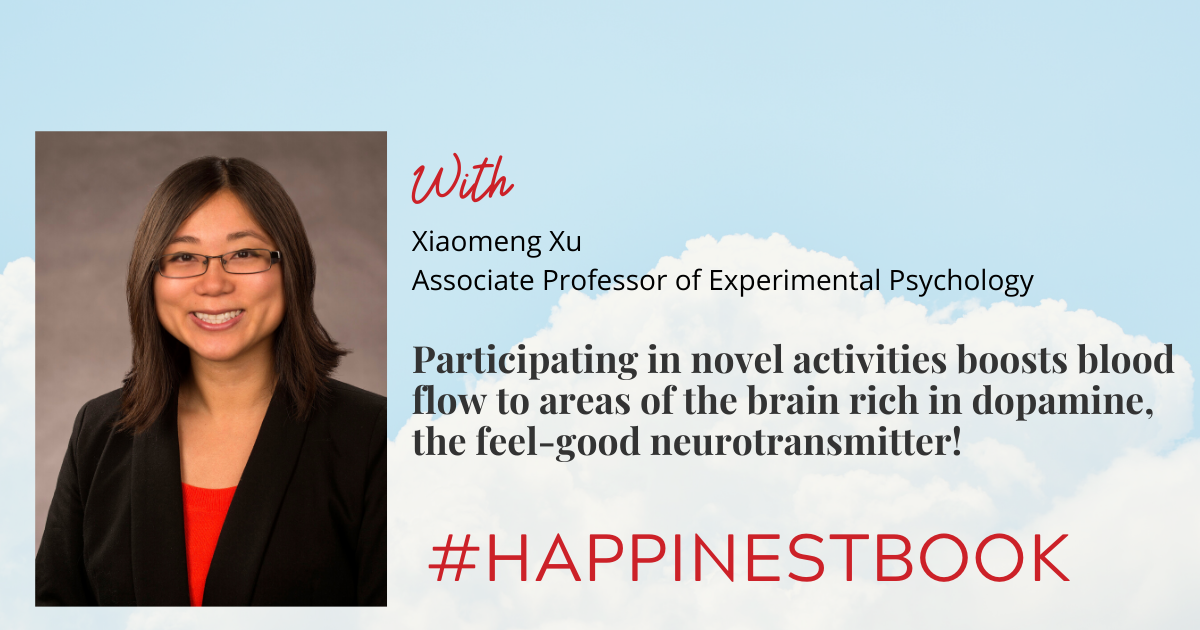Experiencing Novelty Together Makes You Grow Fonder of Each Other
Today our guest is Xiaomeng Xu, who asks others to call her Mona, and also goes by Professor X for her students because her name is tricky to pronounce. Mona was born in Fuling, China and immigrated to the United States at age 5. Raised in New York City, she graduated in psychology from NYU and got her PhD from Stony Brook University. Now she’s an associate professor of psychology at Idaho State University, researching behavioral health, close relationships—especially romantic relationships—and teaching. She also has been involved in fascinating research with brain scans and how human beings respond to novel experiences. I tracked her down when I was writing my book HappiNest because I wanted to tap her knowledge regarding the impact of novelty on novelty on the quality of close relationships.
If you like what you hear, I’d really appreciate it if you would subscribe, rate and review the show. It’s easy to do on Apple Podcasts, or you can go directly to the podcast section of my website at judyhollandauthor.com.
What you’ll learn about in this episode:
- If you sense your romantic relationship is getting stale, just add novelty! New and positive experiences jumpstart relationships when you do them together, and help you view your partner with a more positive perspective.
- Novel experiences that are exciting, interesting and challenging bolster our self-concept. Who we understand ourselves to be grows and we are able to take on new challenges. We gain more identities, which strengthen us.
- Xu tells about moving to Idaho from New York City and watching mutton busting, a rodeo event in which kids wear helmets and try to ride sheep. That experience was so novel for her, it triggered a dopamine release, connecting her better to her then-boyfriend, now husband. New experiences like this also build memoires.
- The feel-good hormone dopamine is a neurotransmitter. It can motivate us to move toward a goal. But it can be tricky in addictions like gambling, which can trigger dopamine release and motivate people to keep going!
- Social media likes can also trigger the feel-good hormone dopamine and prompt people to obsess on their posts.
- Xu did “Functional’’ MRIs of human brains and found that people newly in love during the “butterflies” stage feel a rush of excitement visible on FMRI scans.
- Novel activities also add fun to non-romantic relationships.
- Novelty need not expensive. It could be as simple as watching a favorite show together and talking about it.
- You can adjust the amount of excitement and novelty based on how you are feeling that day.
- Steer clear of novel experiences that are scary or overwhelming. Those trigger the wrong response!
- Challenging ourselves with experiences that are self-expanding—like learning to cook—grow our sense of self and bolster our well-being.
- When your kids go, try a “rediscovery of the self. Revisit a hobby you have put down, reclaim a piece of your lost identity. Self-discovery helps with transitions!
- Have an open, honest dialogue with your partner about where you both are. Negotiate and be supportive.





